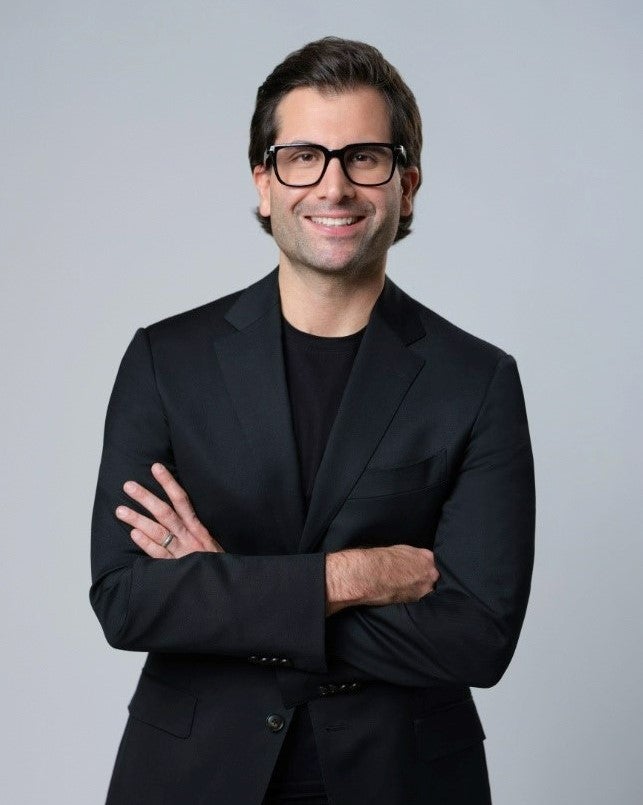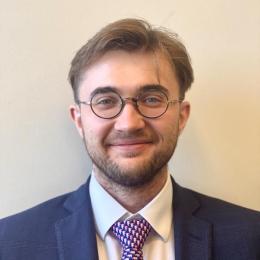
When your life seems like it’s been caught in a riptide, buffeted by stinging winds and lurching waves, revelatory experiences can manifest. Perseverance through these arduous passages helps identify and hone our strengths. And when something new rears its head over the next wave, we’re prepared.
Aarash Darroodi, general counsel of Fender Guitars, shares his story of the challenges that besieged him as he matured as a person and lawyer. His experiences, along with his curiosity in the direction of the world, reverence for the power of human connection, and appreciation of the threads of history, catalyzed a re-definition of what it means to be a modern GC.
Disrupting the meaning of “modern GC”
Darroodi identifies a macro-movement in our workforce: “Corporate America is ready for something different. The old guard is retiring, and the new guard is coming in.” Millennials have made considerable strides into their legal careers, and Gen Z’ers are beginning their journeys as they leave their law school classrooms behind.
In addition, to use Thomas L. Friedman’s phrase, “the world has become flatter.” Technology has enabled hard-working individuals from disparate parts of the world to pursue opportunities that have previously been unavailable to them.
Illustrating his reinvention of a “modern GC,” Darroodi stresses three key elements: cultural-historical appreciation, business acumen, and a solid understanding of technology.
Learn your history!
Story is perhaps the most universally unifying element of human experience. Every group, across time, has told stories and myths that capture the traditions, lessons, and legacies of their predecessors. When these heirlooms are imparted through social institutions, they make fundamental impressions on our characters and change the shape of our own personal narratives. To truly understand what inspires, frustrates, and guides others, one must look to these cultural-historical inheritances.
"A GC needs to be well-versed in the global ecosystem and understand history, politics, and the economy."
The son of hard-working, educated Iranian immigrants, Darroodi spent his early years separated from his parents. Ali and Marjan, his parents, were graduate students at the University of Houston when they welcomed their son in 1981, shortly after the Iran-Iraq war broke out. While Darroodi’s parents studied and worked on securing proper visas, his grandparents suggested a temporary return to Iran for their six-month-old grandson. Even with Darroodi’s American citizenship and passport, harsh border and travel restrictions, established in the wake of the Iran-Iraq war, prevented his return to his parents for seven years. Darroodi’s grandparents, Dr. Habib Arbab and his wife Lila, assumed the role of mother and father and pursued a way to reunite their grandson with his parents.
“A GC needs to be well-versed in the global ecosystem and understand history, politics, and the economy,” Darroodi states firmly.
The power of human connection
Darroodi learned about the power of human connection by how hard his grandfather worked to reunite him with his parents. A meaningful encounter with a Turkish immigration officer changed the course of their lives.
Darroodi’s family sought the reunion of parent and child relentlessly; their tireless pursuit spanned both continents and years. On the doorstep of a Turkish consulate, Darroodi’s grandmother pulled her husband aside and insisted that he summon some of the Turkish he spoke during his deliberations with the officials. Seeing his grandfather engage the officer in his native language, Darroodi recalls, “The person connected. They started talking about childhood, and how he’s from a certain part of Iran that has this Turkic tribe.”
We may not be able to learn every literal language, but we can cultivate a cultural and historical awareness that will enable us to make more meaningful connections with others. Learning about various traditions across cultures, and the legacies that shaped them, will not only make us better negotiators, but it will make us kinder and more attentive to our shared humanity. If a GC hopes to provide the kind of leadership necessary to effectively guide their team, this kind of curiosity must be at the forefront of their approach.
“In my legal department, everybody is required to attend various business unit meetings throughout the entire organization."
Despite the ever-growing pervasiveness of tech, social media, and automation, the power of the human connection is a crucial element that has withstood the test of time. It transcends even current upheavals.
Whether it’s a governmental body or a multinational corporation, the most monolithic world actors have a shared building block: people. It’s the web of personal relationships between these people that enables the system to function. For Darroodi, the human connection isn’t simply a handshake and a greeting; it’s a shared trust and mutual acknowledgement of each other’s stories.
To promote such an attitude at Fender, he shared some strategies to nurture this anthropocentric approach: “In my legal department, everybody is required to attend various business unit meetings throughout the entire organization. We have a lot of different meetings that occur in different divisions. In the beginning they were weirded out by it. Why are there lawyers in the room? After a while, they get used to it. Then, they develop trust and you become part of the group.” In addition, Darroodi’s team is required to undergo mandatory cultural education training to hone their intercultural communication skills.
How to Build a Rain Machine
At the institutional level, Darroodi recognizes a key challenge to the successful development of in-house counsel. He illustrates this challenge with an anecdote from one of his keynote presentations. When asked about the difference between in-house and outside counsel by a lawyer from the United Kingdom, he replied succinctly, “business acumen.” When pressed to elaborate, he peered at the crowd and pointed out that, despite a schedule being readily available months ahead of time, out of the 500 attendees, not a single person reached out for a pre-emptive introduction.
"The practice of law is a profession, but the running of a law practice is a business."
In his diagnosis, Darroodi points to some of the inadequacies of the “outside counsel training ground” that many young lawyers go through prior to their in-house careers. “As outside counsel within these law firms, you are trained to know the law and basically regurgitate and advise your clients based on that law,” he explains. What is missing, he thinks, is the preparation from the business level. For Darroodi, the practice of law is a profession, but the running of a law practice is a business.
Inspired by this cause, he teaches a course titled “How to Build a Rain Machine” specifically aimed at amending this gap in outside counsel development. With DEI at the forefront of his approach, Darroodi finds it important to provide this kind of support to underrepresented and disadvantaged groups in law firms, such as females and minorities.
Lawyer 3.0
It’s difficult to find something that hasn’t been subsumed into tech’s mighty orbit. "Popular culture is saturated with words like blockchain, NFTs, AI, and cryptocurrency,” he observes. The intersection of tech and the professional world was made even more apparent with the COVID-19 pandemic.
For Darroodi, the traditional definition of working in-house must change to meet the nuances of this new technological landscape.
“It needs to change. The world has changed. Technology has changed. Today’s general counsel must understand technology,” he explains. General counsel need to ask themselves: “What’s Web 3.0, what’s blockchain, what are non-fungible tokens, what is machine learning, where is AI going? It’s the only way you can truly understand how you can protect the company, when you can understand the direction the world is going.”
"Today's general counsel must understand technology...It's the only way you can truly understand how you can protect the company, when you can understand the direction the world is going."
Vehicles of change
“Whatever position that I have, I will use it as a vessel to effectuate positive change,” Darroodi affirmed during his reflections on his career and future aspirations. He was the first in Fender’s history to hire a female attorney, African-American attorney, Asian-American attorney, and LGTBQ attorney. His goal is to further augment the strength of the legal profession through diversity and inclusivity.
In addition to his work as GC, Darroodi harnesses his diverse skillset to pilot Fender’s Play Foundation. As president, he’s developed a program that bridges over 14,000 middle school students in the Los Angeles area with equitable access to musical education and instruments. The program has achieved participation from artists such as Fall Out Boy and Billie Eilish. Darroodi’s goal over the next decade is to take the program beyond LA’s borders and reach 40,000 new students.
Perceived weaknesses are great strengths
As an Iranian American, Darroodi faced a unique set of challenges. Shaped by the Iran-Iraq war, his childhood was followed by an adolescence pockmarked with discrimination and rejection on the grounds that he deviated away from some prevalent “norm” or “standard.”
Nevertheless, he embraced his background. In his work and interactions with others, he felt that an attempt to align with some accepted norm would undermine his work’s authenticity. From this, he diluted an important lesson: what may be presented as a weakness can in fact be your greatest strength. His challenges — so particular to his life experience — made him stronger.
Darroodi’s words echoed Obi-Wan Kenobi’s stoic proclamation before Darth Vader’s looming shadow: “If you underestimate me, I shall become more powerful than you can possibly imagine.”
Disclaimer: The information in any resource in this website should not be construed as legal advice or as a legal opinion on specific facts, and should not be considered representing the views of its authors, its sponsors, and/or ACC. These resources are not intended as a definitive statement on the subject addressed. Rather, they are intended to serve as a tool providing practical guidance and references for the busy in-house practitioner and other readers.




